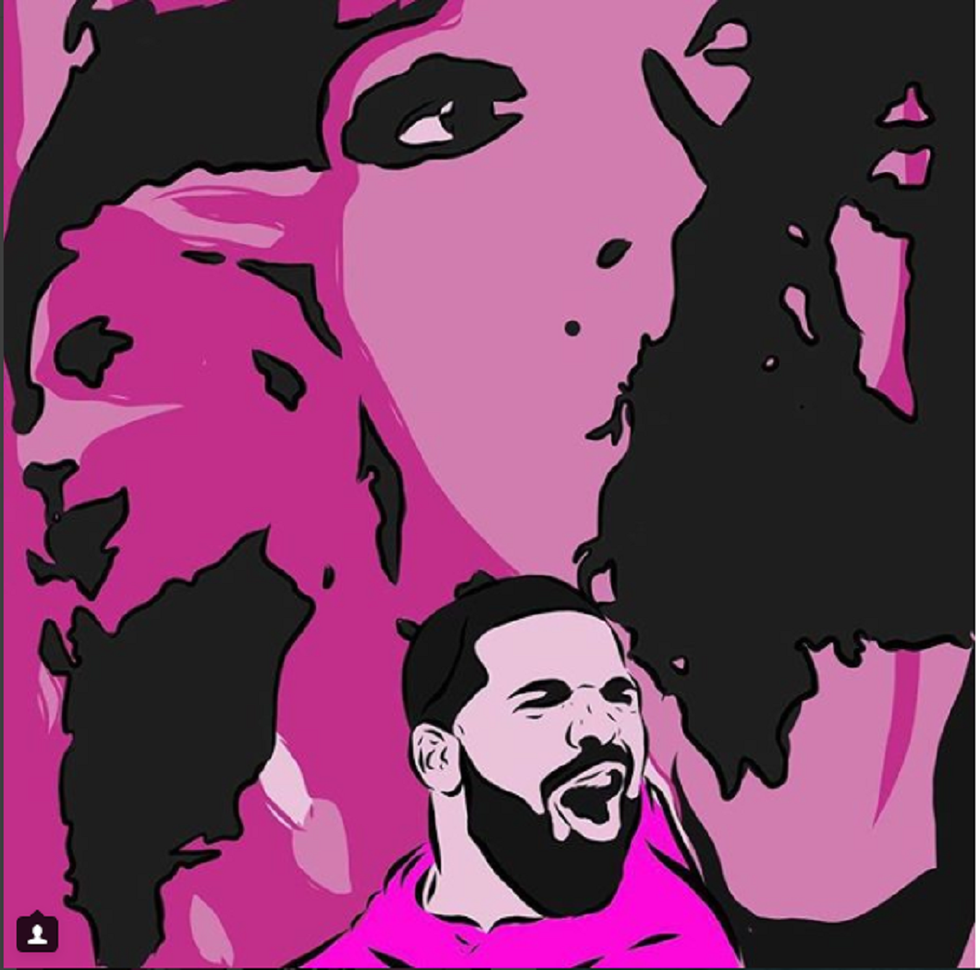If you haven't heard it by now, I'm sure you save a lot of money on rent, since it can't be that expensive to live under a rock. Canada's favorite son released another single for all his fans, admittedly more recently than expected (my guess is it has to do with his disappointing performance on his 'Lemon' feature, but that's neither here nor there). After having bumped it multiple times on the C Route, in my friend's cars, and even in the study rooms at Woodruff, I have to say that I am skeptical about it's actual greatness.
Between a video that features the beautiful faces of some of the most popular and influential women right now, a surprisingly lighthearted and positive pro-woman message, and catchy beat, upon first listen Drake seems to have produced a masterpiece. But once the women's faces are stripped away, and all that is left is the song, there are multiple areas that seem a little lackluster. Yes, the message is still as positive and the beat still as catchy, but without the faces, the song just doesn't hit home as hard anymore.
The track is well-composed, boasting samples from Lauryn Hill's "Ex-Factor", Big Tymers' "Get Your Roll On", and sizable vocal contributions from Letita Wright and Big Freedia (the intro voice in Beyonce's 'Formation'). The genre, Louisiana bounce, has been largely popularized by Big Freedia, a trans-woman of color, who is largely credited with the growth of the genre of New Orleans Hip-Hop that produces high energy twerk songs handmade and delivered for the club scene. What we are left with is a Bop that inspires you to dance, something known to be a big factor in singles' sales, but that leaves Drake seeming a bit out of place.
There are many people who have complained that they are getting tired of Drake, and who have criticized him for essentially finding genres of music and co-opting artists into his projects to sustain his popularity and reach new audiences. From Grime to Dancehall (Controlla sampled Beenie Man), and now Bounce, it seems that Drake's own artistic creativity has turned into a game of musical chairs (no pun intended) in which he hops from sound to sound, profiting from each genres' fan-base. And while strategically brilliant, there is some thought to be given to the fact that he is profiting from co-opting sounds that other artists live by, repackaging them, and introducing them to a large, mainstream audience.
That is not to say that his regular ole rap songs (like God's Plan) suffer from unpopularity, but it brings into question Drake's ability to produce and sell music organically. While his versatility is not to be underestimated nor ignored as a talent, it also creates the issue of whether what listeners love is really Drake, or the slew of people Drake has hired (as seen in 'Nice For What' and it's video) under the Drake brand.
My first time listening to 'Nice For What' without the accompaniment of the video, I was almost convinced I didn't like it. Drake's vocal performance seemed to be flat and lackluster, almost indifferent to what he was saying, as if it were an addition to the samples and voices in the back, and not the foundation of the song. I imagine Drake is aware of this phenomenon, a reason why he chose to take a backseat to the faces and people (women) the song seems to pay homage to (I'm curious as to why Big Freedia didn't get to make a cameo but it might have to do with transmisogyny). If this were a conversation about men co-opting women's spaces and stealing their spotlight, this article would go differently, as it is nice to see a man forfeiting that for a change. But upon listening, it seems more like economic and social maneuvering to cover up an initially mediocre song, than social justice.
I'm no expert. And I will be turning up the volume saying, 'what ya'll know about this?' to my children when it comes on the radio in 2035. But it's still something worth considering.

















